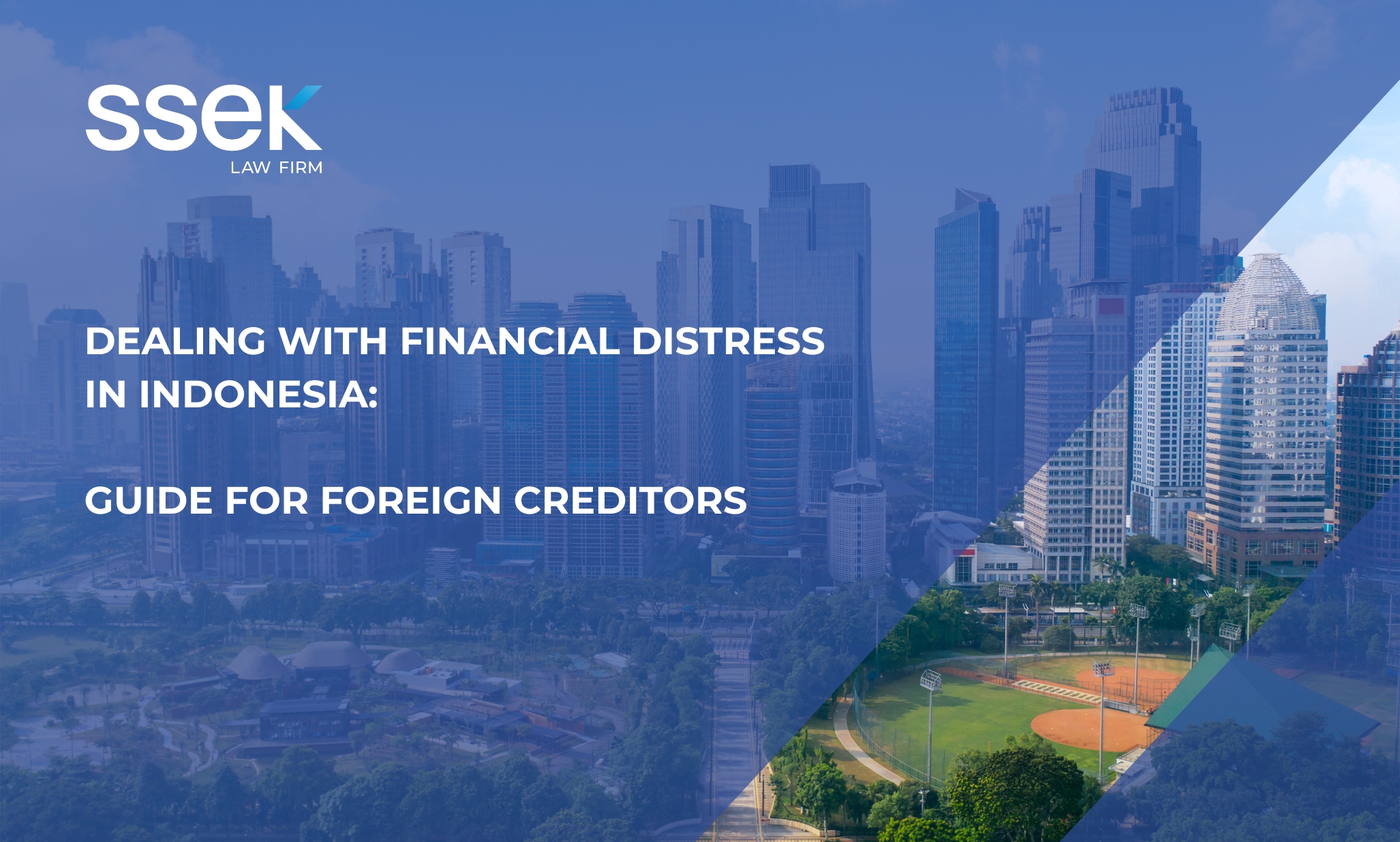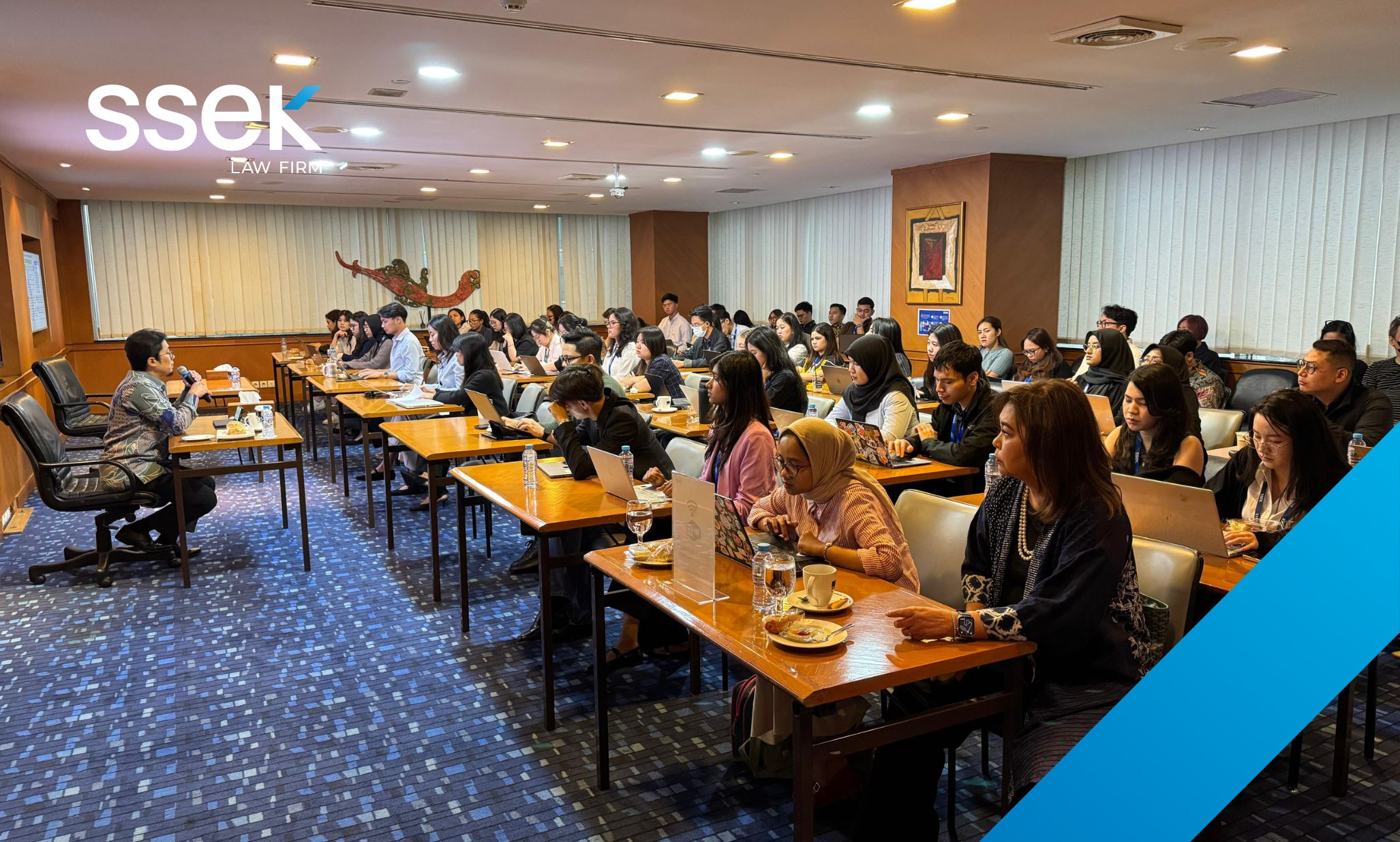


Indonesia’s new Government Regulation No. 30 of 2024 regarding Water Resource Management ("GR 30/2024"), issued on August 14, 2024, seeks to establish a comprehensive framework for sustainable water resource management, aimed at protecting water resources while supporting productive use. The scope of resources covered includes surface water (from rivers, coasts, etc.) and groundwater.
GR 30/2024 replaces outdated regulations, including Government Regulation No. 121 of 2015 regarding Water Resource Exploitation ("GR 121/2015"), and addresses challenges posed by climate change, industrial growth, and population increases.
This article explores key provisions in GR 30/2024 that are particularly relevant for companies, focusing on water resource utilization and licensing requirements.
Use of Water by Companies
Water is an essential resource and its effective management is crucial for ensuring sustainability and fairness. Chapter VI of GR 30/2024 sets forth guidelines for water use, focusing on stewardship, supply, usage, and development to prevent over-extraction and environmental degradation.
The chapter establishes the priorities for water resource utilization, placing daily community needs first. Once these basic needs are met, priority is given to agricultural irrigation, followed by non-commercial and then commercial activities. Commercial water use is thus the lowest priority under the regulation, permitted only after the fulfilment of the other needs.
The key principles that must govern water use are fairness, efficiency, accuracy, sustainability, order and integration. These principles are enforced through water management plans tailored for each water resource type. The relevant authorities – ministers, governors, and local officials – oversee the creation and implementation of these plans, which involve assessing current usage, conducting environmental studies, and resolving conflicts among stakeholders.
Having established the hierarchy and principles governing water use, the next key area of focus is the licensing regime for companies.
Licensing for Companies
Licensing of water resources is another strategy under GR 30/2024 to prevent unregulated extraction and ensure responsible water use. This regulation governs the issuance of licenses for both surface and groundwater usage, with two main types of licensing: business license for commercial use and approvals for non-commercial use.
The business license is granted to obtain, take, and/or use water resources for commercial purposes. Further rules governing business licenses are covered in a separate government regulation. It should be noted that GR 30/2024 regulates that business license holders are required to pay water resource management service fees ("BJPSDA") to the authorities responsible for the management of water resource, unless the license is for construction activities that do not involve water use. The BJPSDA is determined based on the economic capacity of the group using the water resource, product competitiveness, and the volume of water resource utilized.
The priority for issuing approvals and licenses follows a structured order aligned with the water usage priorities: basic daily needs for large groups, basic daily needs that alter the natural conditions of a water resource, subsistence agriculture, commercial needs for drinking water supply, non-commercial public activities, commercial activities by state or regional-owned entities and, lastly, commercial activities by private entities or individuals.
Some non-commercial activities are exempt from the need for approvals, such as those related to personal basic needs or agriculture within an irrigation system. However, approvals are necessary in certain conditions. For example, surface water usage approval is required for basic needs or agricultural activities that alter the natural conditions of a water source, involve large groups, are done outside of irrigation systems, or are intended for non-basic needs beyond small-scale farming. Other non-commercial activities that require approval include the use of water for power generation for personal or community use, construction, public tourism, research, education, and public facilities.
Aside from surface water and groundwater usage, the use of coastal water on land for commercial purposes requires a business license, except for agriculture, fisheries, farms, plantations, and forestry managed by the community with certain acreage and water requirements. In addition to obtaining a business license, an environmental impact assessment ("AMDAL") is required if the use of coastal water has the potential to have a significant environmental impact.
The authorities responsible for issuing approvals for non-commercial needs depend on the jurisdiction. Ministers handle approvals for river basins that cross provincial, national, or strategic boundaries, while governors are responsible for river basins that span regencies or municipalities, and regents or mayors are responsible for river basins within one regency or municipality. Approvals can be granted to individuals, groups, government institutions, or legal entities. Further details can be found in Articles 110 to 114 for surface water usage and Articles 117 to 119 for groundwater usage.
Compliance
To ensure compliance, GR 30/2024 imposes administrative sanctions on companies that fail to adhere to water resource regulations. Authorities can impose penalties of increasing severity, proportional to the violations, including written warnings to the companies, and the temporary suspension, freezing, or revocation of the companies’ water use approvals.
For companies engaged in activities without authorization, such as unapproved water usage or construction, fines may be imposed. These unauthorized activities must be rectified by applying for the appropriate permits within three years as of March 31, 2023.
Additionally, if non-compliance results in environmental or infrastructure damage, the responsible parties are required to make repairs within a set timeframe or risk losing their permits.
Transition From Previous Regulations
GR 30/2024 took effect on the date of its promulgation, replacing GR 121/2015. While the basic framework is similar, there are notable differences. Both regulations prioritize public needs and environmental sustainability before commercial use, with private entities granted water usage rights only under strict permits. However, the new regulation provides less detail than its predecessor, focusing more on general government supervision and sustainability, whereas GR 121/2015 placed greater emphasis and elaboration on the commercial use of water for profit.
Regarding licensing, one notable difference is the distinction between approvals for non-commercial usage of water resources and business licenses for commercial usage. While GR 121/2015 provided comprehensive guidelines for business licensing without addressing non-commercial licenses, GR 30/2024 primarily focuses on approvals for non-commercial use and does not provide detailed provisions on business licensing.
Conclusion
As water scarcity becomes an increasing concern, GR 30/2024 offers a critical framework for responsible water management in Indonesia.
Regardless of a company’s size or industry, obtaining the appropriate water usage licenses under GR 30/2024 is a key aspect of operating in Indonesia. By aligning with the regulation’s focus on sustainability, companies can safeguard their operations while preserving one of Indonesia’s most vital resources.
This publication is intended for informational purposes only and does not constitute legal advice. Any reliance on the material contained herein is at the user’s own risk. All SSEK publications are copyrighted and may not be reproduced without the express written consent of SSEK.









